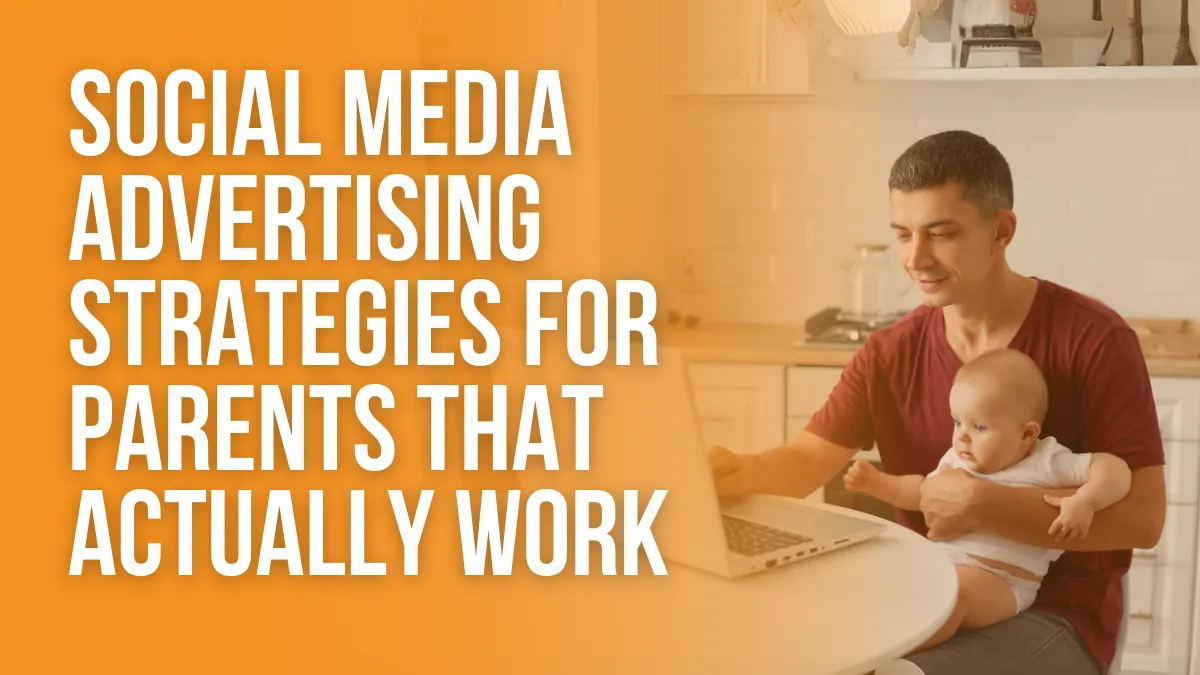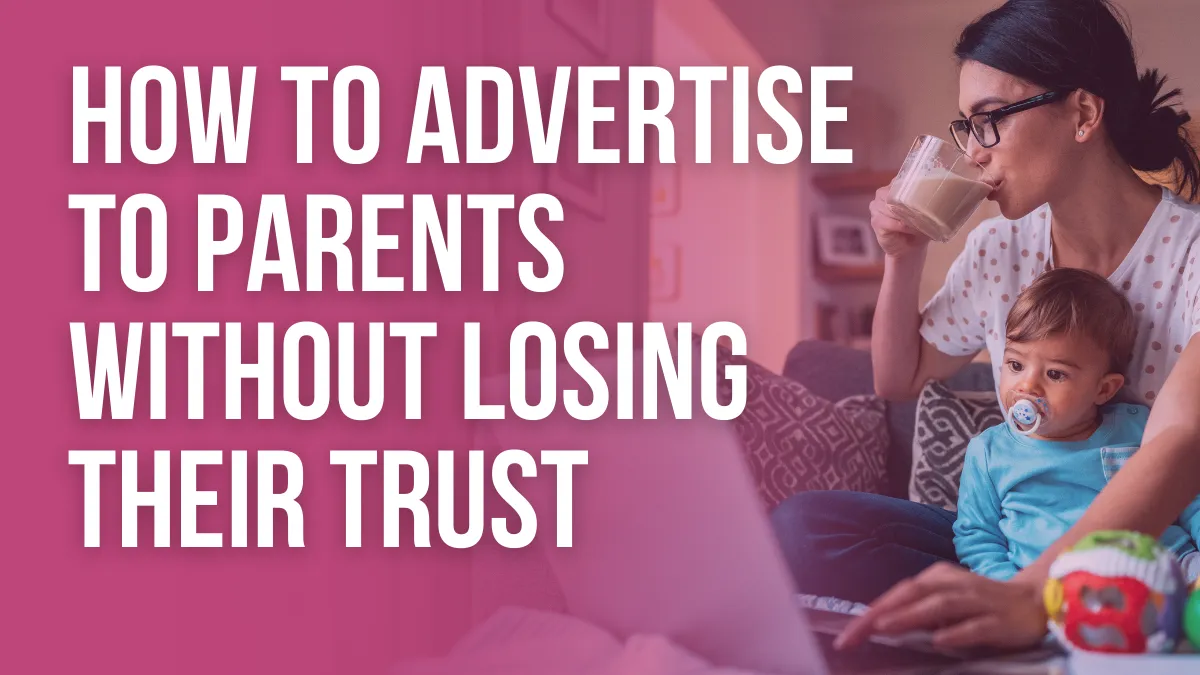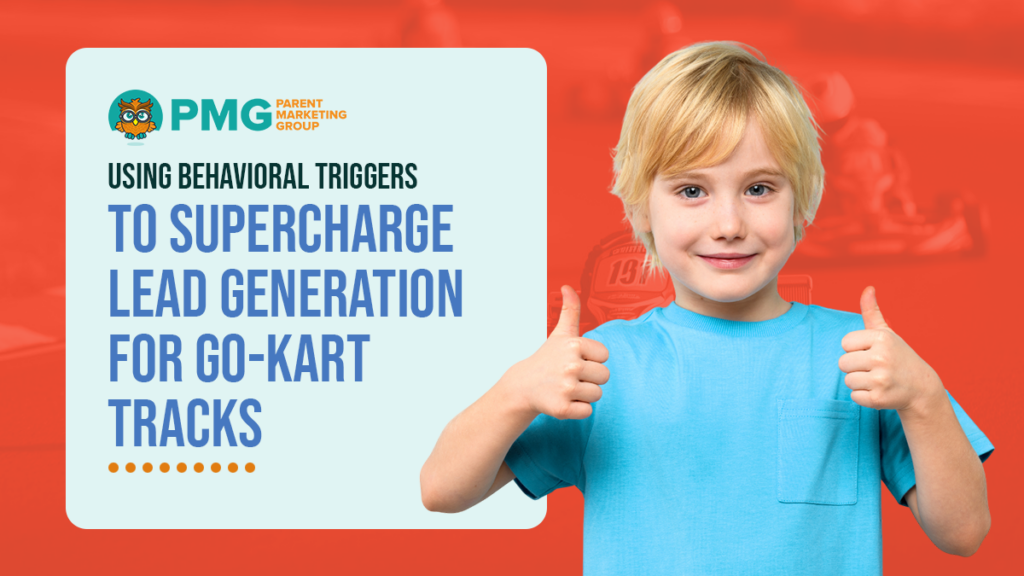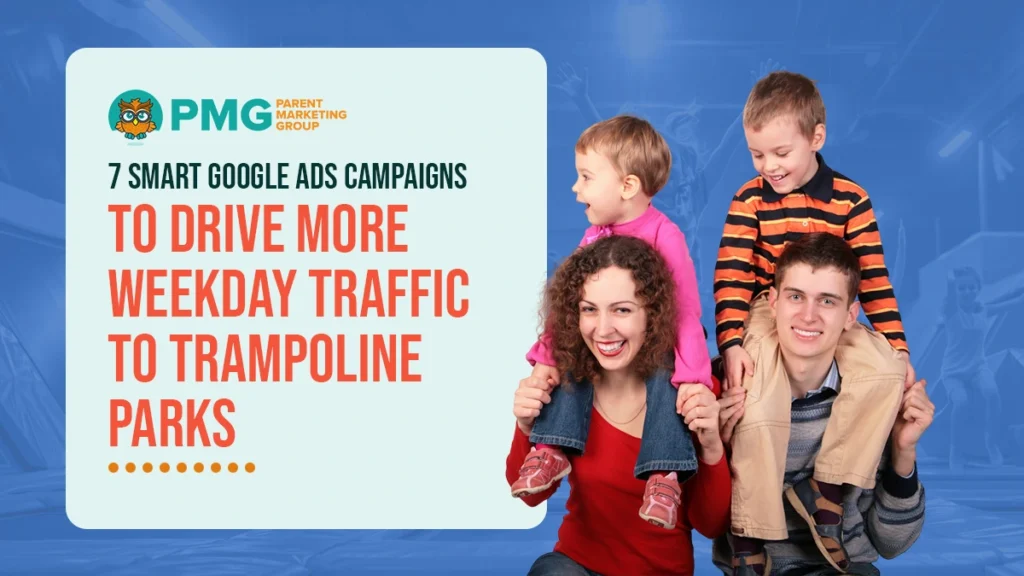Social media marketing strategies for parents require more than clever content—they demand connection, trust, and a deep understanding of what families truly value. In today’s competitive digital landscape, brands that serve moms, dads, and caregivers need to meet them where they are: scrolling through posts, searching for advice, and looking for real solutions from brands they can believe in.
Whether you’re a local swim school, a tutoring center, or a national parenting brand, the right social strategy can transform how you reach and resonate with your audience. This blog will explore proven, practical social media approaches that help child-centric businesses grow online visibility, build stronger communities and turn engaged parents into loyal customers.
Social Media Advertising Strategies for Parents That Actually Work

Social media advertising strategies for parents must strike the right balance between relevance, empathy, and value. Parents today are more digitally connected than ever, but they’re also selective about the content they engage with. Your ads don’t just need to stand out—they need to speak directly to the needs and priorities of modern families.
Choose the Right Platforms for Your Audience
Not all platforms work the same way for parent-focused marketing. Knowing where your ideal audience spends their time is step one in crafting successful social media ad campaigns.
- Facebook is still the go-to platform for many parents, especially those aged 30–50. Its community groups, events, and sharing features make it a trusted hub for family-related content.
- Instagram works well for visually driven content, like kids’ activities, early education programs, or family events. It’s ideal for businesses looking to showcase experiences and build emotional connections.
- Pinterest is a hidden gem for parent-targeted ads, especially for brands offering crafts, party planning, learning tools, or meal prep ideas.
- TikTok and YouTube Shorts are gaining traction among younger parents. Short-form videos offering tips, humor, or quick insights often have high engagement here.
Focus your budget where your audience naturally spends time—and where your content feels most native.
Create Ads That Reflect Real-Life Parenting Moments
Parents are inundated with content daily, so authenticity is key. Ads that feel overly polished or too “salesy” will likely be skipped. Instead, create messaging that reflects the day-to-day life of a parent—messy, beautiful, and busy.
What works:
- Relatable storytelling: Think “before-and-after” moments, daily challenges, or quick wins for parents.
- Visuals that show diversity in families and parenting styles.
- Emotionally resonant headlines—humor, relief, or “this is exactly what I needed” moments.
Keep it grounded and accurate. Parents are looking for solutions, not hype.
Use Targeting Tools to Reach the Right Parent Demographics
One of the most powerful advantages of social media advertising is advanced audience targeting. Use it wisely to avoid wasting your budget.
Consider segmenting by:
- Life stage: Expecting parents, parents of toddlers, school-aged kids, or teens.
- Location: Great for promoting local services like preschools, kids’ gyms, or enrichment programs.
- Interests and behaviors: Look for parents engaging with education content, parenting groups, or family-friendly products.
Layer in lookalike audiences based on past website visitors or customer lists to expand your reach with similar demographics.
Always Provide Clear Value and a Simple Next Step
Even the most engaging ad needs a purpose. Be crystal clear about what you’re offering and why it matters to parents.
- Highlight time-saving features, educational benefits, or family impact.
- Keep your CTA (call to action) simple: “Sign up,” “Learn more,” or “Book a trial.”
- Lead to a landing page that reflects the same tone and value promised in the ad.
Busy parents don’t have time to guess what you want from them—make it easy, and they’ll take the next step. When done right, social media advertising can build trust, spark action, and foster long-term loyalty among parents. By focusing on real value, smart targeting, and relatable messaging, your business can connect with families in meaningful, measurable ways.
How to Advertise to Parents Without Losing Their Trust

Learning how to advertise to parents effectively means understanding more than just what they buy—it’s about understanding why they buy. Parents are some of the most informed, intentional consumers out there. They value honesty, safety, and meaningful experiences, especially regarding products or services that affect their children. That means if your messaging feels disingenuous or too sales-driven, it won’t just get ignored—it could hurt your brand’s reputation.
Lead with Authenticity, Not a Sales Pitch
Today’s parents are highly skeptical of anything that feels overly polished or too “perfect.” They’ve seen it all and can spot a hard sell from a mile away. Instead of leading with your product or service, lead with your mission, your story, or the real problem you’re solving.
What builds trust:
- Sharing your “why”—why you started, why you care, and why it matters to families.
- Real-life testimonials from other parents or caregivers.
- Behind-the-scenes content that shows your team, your process, or your values.
If parents can see the heart behind your brand, they’ll be far more likely to listen to what you offer.
Focus on Solutions, Not Pressure
Parents are busy, and many juggle dozens of responsibilities at any given time. The last thing they need is to feel pressured into a decision. Instead of pushy calls-to-action, use language that positions your brand as a helpful guide or trusted resource.
Try:
- “Here’s how we can help…” instead of “Buy now.”
- “Designed with families in mind” instead of “Limited-time offer.”
- “Explore what works best for you” instead of “Act fast!”
Your goal is to invite—not demand—action. Respecting their time and intelligence builds credibility.
Use Social Proof and Parent Voices
Nothing builds trust like hearing from other parents. Testimonials, reviews, user-generated content, and even brief quotes from real customers show that your brand is trustworthy. Parents trust other parents, so let them do the talking.
Ways to use social proof:
- Short video clips or screenshots of parent reviews.
- Case studies or mini-stories about how your service helped a family.
- Featuring real parents in your campaigns, rather than actors or stock photos.
When parents see people like them using—and loving—your brand, it creates a natural connection.
Be Transparent and Consistent
Trust is built through clarity and consistency. Always be upfront about what you’re offering, what it costs, and what families can expect. Don’t make exaggerated claims or hide the fine print—parents will notice.
Key areas to be transparent:
- Pricing and packages
- Program or service limitations
- Expected outcomes and timeframes
Make sure your messaging is consistent across platforms—from social media to your page to your email campaigns. Consistency reinforces reliability and professionalism.
Creating Content That Resonates with Moms and Dads
When marketing to parents, content is more than just a tool—it’s your voice, your values, and your first impression. Moms and dads constantly absorb information, often in quick bursts between school drop-offs, work meetings, or bedtime routines. That means the content you create needs to be relevant, helpful, and emotionally intelligent. It should reflect the real experiences of parenting while delivering clear value.
Understand What Parents Are Looking For
Before creating content, it’s crucial to understand what matters to your audience. Parents aren’t just looking for another product but support, reassurance, and answers. Every piece of content must have a purpose: solving a problem, easing a concern, or offering a benefit that fits seamlessly into their daily lives.
Content that tends to resonate includes:
- Educational tips (e.g., parenting hacks, health and safety info, child development insights)
- Emotional validation (e.g., relatable stories, encouragement, or moments of humor)
- Time-saving solutions (e.g., how-tos, quick wins, or helpful checklists)
By speaking to both the practical and emotional sides of parenting, you show that your brand truly understands the modern family.
Find the Right Balance Between Informative and Relatable
Content that’s too formal can feel disconnected, while content that’s too casual might miss the mark. The sweet spot? A tone that’s informative but approachable—like a trusted friend who happens to know a lot about parenting, education, or family-focused services.
Ways to strike the right tone:
- Use plain, friendly language—but don’t oversimplify or talk down to your audience.
- Share examples from real families or everyday situations parents face.
- Don’t shy away from challenges—acknowledge them honestly and offer support or solutions.
Remember, it’s not about impressing parents—it’s about connecting with them. That connection builds trust, and trust drives engagement.
Use Captions and Visuals That Spark Emotion and Engagement
Parents scroll through content quickly, often while multitasking. Captions and visuals are what stop the scroll—and make them stay. The content should evoke a feeling, whether it’s a heartfelt quote, a funny parenting meme, or a short video showing a child’s first experience at your center.
Tips for creating engaging content:
- Photos of real people and real families: Authenticity wins over polished stock images.
- Captions with purpose: Ask thoughtful questions, share brief parenting wins, or highlight customer testimonials.
- Videos that are short but powerful: Even a 15-second video with a relatable story can make an impact.
Encourage conversation with call-to-actions like, “What’s been your biggest parenting win this week?” or “Tag a parent who needs to hear this.” Engagement isn’t just about likes—it’s about building community.
Conclusion
Marketing to parents isn’t about flashy tactics or one-size-fits-all strategies—it’s about real connection. When your brand shows up with empathy, authenticity, and value, you’re not just gaining customers—you’re becoming a trusted part of a parent’s journey. Using the right social media strategies, thoughtful advertising approaches, and meaningful content, your business can grow with parents, not just with them. Parents are looking for support. With the right message and mindset, your brand can be the one they trust most.
Want to take your parent-focused marketing to the next level? Contact our team at Parent Marketing Group or call us at (716) 303-4133. We’re here to help you build something families believe in.







